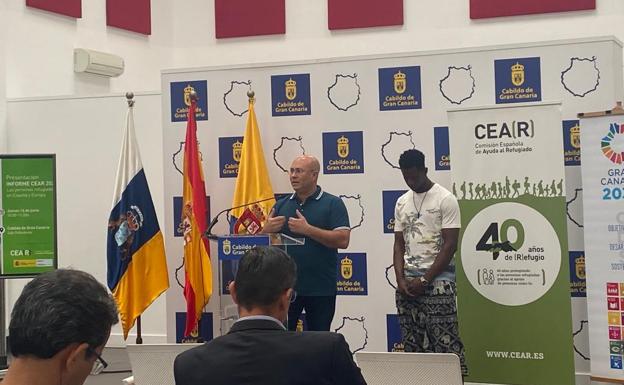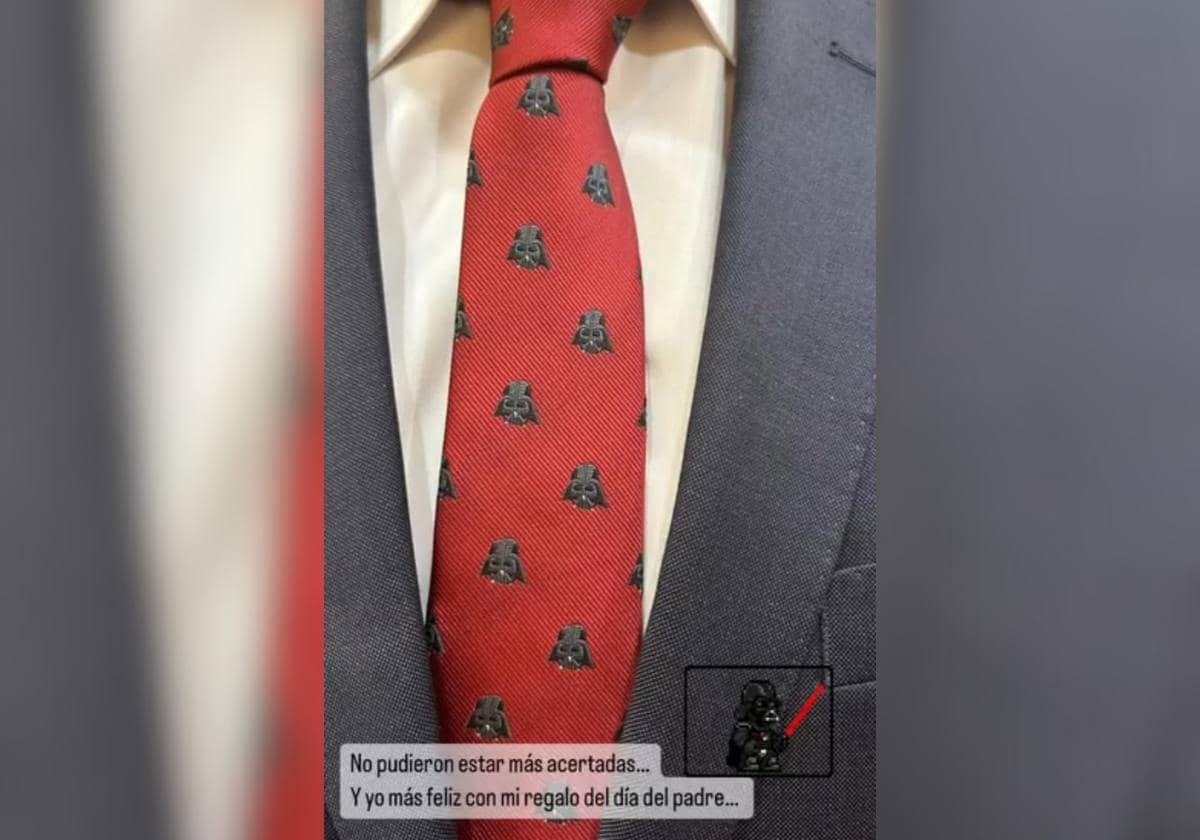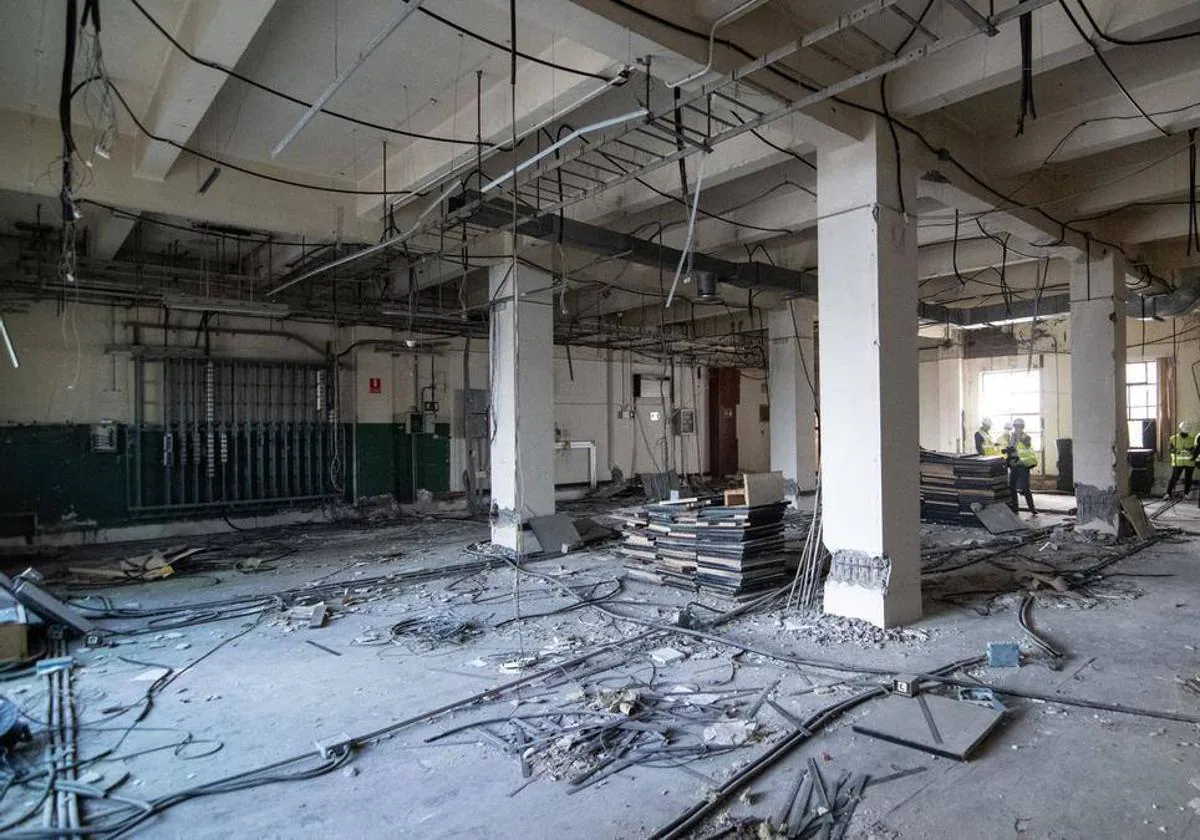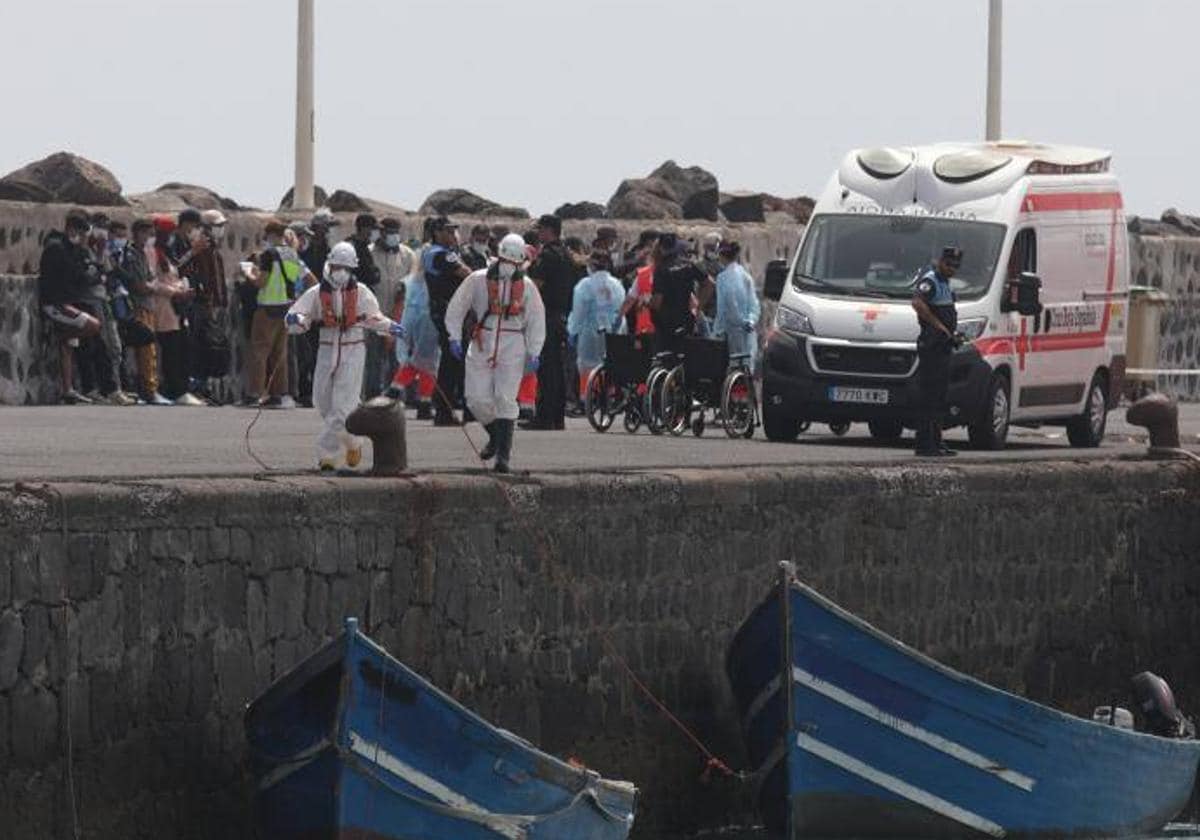Refugees: the faces behind the figures that do not stop growing
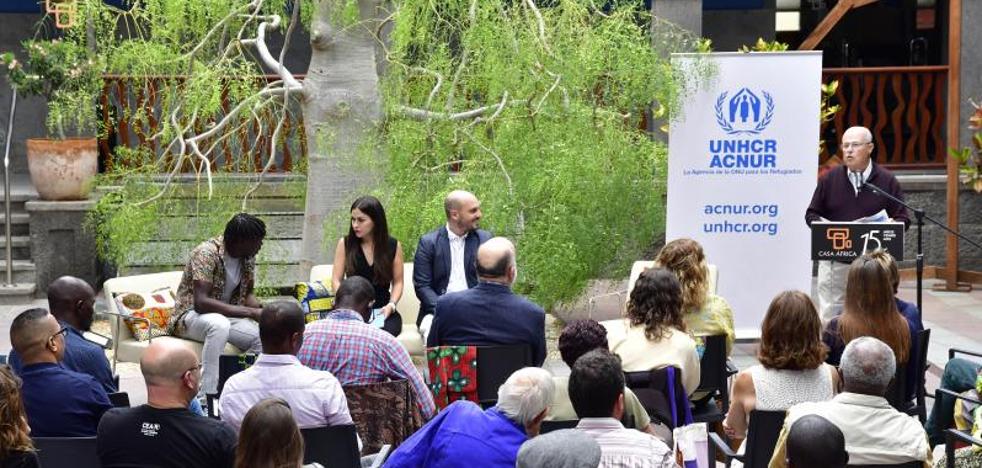
"Everyone has a story. Life is a difficult journey and, like the river, it always changes. With these words, Moussa Canuté concluded his own story, that of three escape attempts, two deaths, hunger and fear.
However, he is not the only one: to date
89.3 million people have been forcibly displaced of their countries — not counting those affected by the war in Ukraine — twice as many as a decade ago, and approximately 41% are minors.
These are some of the figures offered yesterday by the High Commissioner for the United Nations (UNHCR) at a meeting at Casa Africa on the occasion of the
International Refugee Day. A date in which they wanted to give a voice to these people and recognize their strength to seek new opportunities. “The data is necessary to measure the situation, but only by knowing the names behind it do we foster empathy and that is what we cannot lose,” said representatives of the delegation that has been operating in the Canary Islands since 2021.
The story of
Moussa Canute begins at the age of 16 in Mali. Actually, probably much earlier, but that's when he leaves for Libya in a first attempt to reach Europe via Italy. He was in a convoy organized by the African mafia in which he was with a friend packed with 75 people.
They went down to Burkina Faso and from there they went to Niger, but the driver who was taking them ended up abandoning them in the middle of the Sahara desert, where many of their companions
they died of hunger and cold after a week. Against all odds, and severe muscle pain from exhaustion, the teenagers manage to meet Moussa's uncle in Libya. It was not a family home that awaited them there, but an accommodation where they lived overcrowded with some 50 other people.
Every morning he went to a square that served as an analog employment exchange: employers and employees met and arranged verbal contracts that were later broken. «
Nowhere in Libya is safe The Malian acknowledges. The police go after black people because they treat us like dogs, but even children have the freedom to shoot or hurt us if they want.
Many times, says Moussa, he got one-day jobs in which his boss did not pay him or others that lasted for months, as happened to him with a compatriot from Mali who took him in as a bricklayer's apprentice. On that occasion, he admits, at least he learned the trade.
"You can't negotiate or rebel either, because if you say something they can shoot you without consequences," he admits. Over time, he chose to work for himself and later, in the gold mines of the Sahara.
It was at that time when
he was hit hard by the death of a friend who, like him, was fleeing the insecurity of his country. They killed him with a knife in the back on the way to the supermarket, while some of his classmates were waiting for him at home. The police did not return the body to them until a month later and after having removed the organs.
The lived drama prompted him to cross the Mediterranean, from the city of Tripoli, not without difficulties. That time, the start of a war forces him to go back. In a second attempt, he leaves on a boat that breaks 5 hours after setting sail, but manages to be rescued by the Libyan police, who imprisons him for a month and then deports him back to Mali.
Finally, choose
the Moroccan route and part from Dakhla to Gran Canaria. Already on the islands, she was hit by a second death, on Friday, June 3, 2020. “I will never forget that day,” she remarks. The date on which another young man with whom he shared much more than the boat ride became seriously ill with his liver and, in just two days, left him.
Now, Moussa has turned 24, has been a volunteer in the reception of immigrants, is studying ESO and has the ambition of being an electrician. But what he is most grateful for is that they have given him an opportunity and, also, the love "from the heart, not from the mouth" of his adoptive mother.



